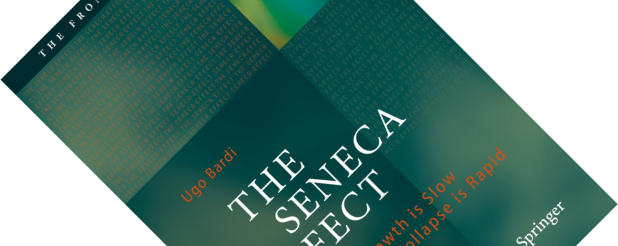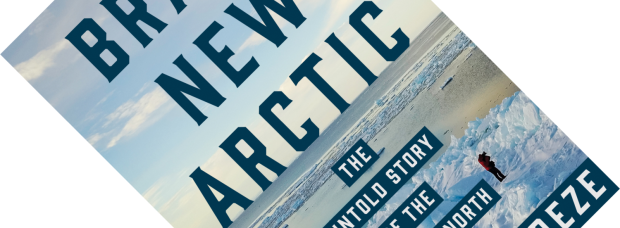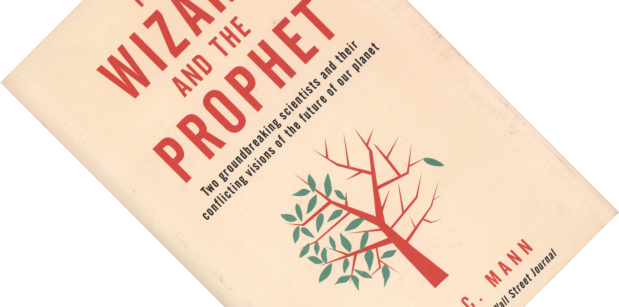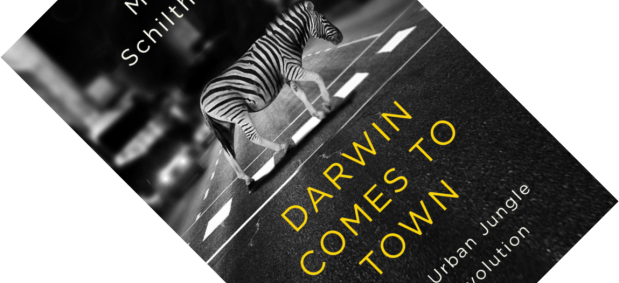I am going to start this review on a tangent. The liner notes of the 1983 album Zeichnungen Des Patienten O.T. of the German industrial band Einstürzende Neubauten contained the slogan “Destruction is not negative, you must destroy to build”. I don’t expect that Ugo Bardi shares my taste in music, but, judging from this book, I’m sure that if we were to sit him down with the band members over a pint, they would have plenty to talk about. Because, according to Bardi, collapse is a feature, not a bug.
environment
Book review – Brave New Arctic: The Untold Story of the Melting North
You might think that with the constant presence of the subject of climate change in news stories there isn’t much left to tell. But just because a certain sense of climate-change-fatigue might have set in (which is worrying in itself), climate change has not stopped. In Brave New Arctic, geography professor Mark C. Serreze gives an eye-witness account of how the Arctic is rapidly changing, based on his more than 35 years of personal involvement. And as he shows, there certainly are stories left to tell.
Book review – Against the Grain: A Deep History of the Earliest States
History books tend to portray the transition of humans as hunter-gatherers to farmers – and with it the rise of cities, states and what we think of as civilization at large – as one of progress and improvement. But with Against the Grain: A Deep History of the Earliest States, political scientist and anthropologist James C. Scott challenges this narrative. That our switch to an existence as sedentary farmers impacted our health is something I was familiar with from palaeopathological findings, see for example Ungar’s Evolution’s Bite: A Story of Teeth, Diet, and Human Origins or Hassett’s Built on Bones: 15,000 Years of Urban Life and Death. But Scott tackles this subject from many angles, summarising accumulating archaeological and historical evidence to provide a fine counter-narrative.
Book review – The Wizard and the Prophet: Two Remarkable Scientists and Their Conflicting Visions of the Future of Our Planet
If I asked you to propose solutions to some of the world’s problems and future challenges, things such as overpopulation, food production, hunger, soil erosion, resource depletion, energy production etc., what ideas would you put forth? Most likely, your proposals would build on the intellectual legacy of two men you have never heard of. Allow American journalist and writer Charles C. Mann to introduce you to ecologist William Vogt, father of the environmental movement, and Nobel-Peace-Prize-winning plant breeder Norman Borlaug, instigator of the agricultural Green Revolution.
Book review – Effective Conservation Science: Data Not Dogma
Following hot on the heels of Cambridge’s Defending Biodiversity: Environmental Science and Ethics, Oxford University Press has just published the edited collection Effective Conservation Science: Data Not Dogma. Whereas the former title was careful about courting controversy, a quick scan of the chapter titles of this book suggest it is seeking out hot-button issues sure to upset some people (“Uncomfortable questions and inconvenient data in conservation science”, “Introduced species are not always the enemy of conservation”, or “Rehabilitating sea otters: feeling good versus being effective”). Together, these two books form an excellent combination of a philosophical and pragmatic examination of biodiversity conservation, and how we could do better.
Perhaps more than any other discipline, conservation science arouses strong feelings of righteousness, of fighting the good cause. Critical questions or results that run counter to the narrative of nature-in-decline are unwelcome, often out of fear that policymakers and the media will misinterpret such findings, leading to drastic reduction in support for conservation efforts. Though understandable, Effective Conservation Science is a collection of 26 cautionary tales of the dangers of such thinking.
Book review – Darwin Comes to Town: How the Urban Jungle Drives Evolution
We biologists are a moody bunch, aren’t we? Forever lamenting the loss of biodiversity and unspoiled wild nature around us as humanity transforms the planet. The Anthropocene, the sixth extinction – I dare say you could accuse us of a certain doom-mongering. We ought to present a united front to the many threats unscrupulous groups in the outside world throw at our precious wildlife. So, beware the biologist that breaks rank and suggests a different narrative – he or she can expect a healthy amount of criticism. So it was with Chris D. Thomas’s recent book Inheritors of the Earth: How Nature is Thriving in an Age of Extinction (read my interview with him over at my employer’s blog The Hoopoe). And so it is with Menno Schilthuizen’s new book Darwin Comes to Town: How the Urban Jungle Drives Evolution. You leave it to us pragmatic Dutch to say out loud the things you don’t like to hear…
Opinion: the complexity of eco-fashion or, there is no free lunch
Today, a fantastic piece was shared on Facebook by various friends that I found myself furiously agreeing with, nodding all the way through. Written by freelance journalist Alden Wicker, it was already published in November 2017 on Craftsmanship Quarterly, but only now made its way into my circles. Her piece, provocatively titled “Eco-fashion’s Animal Rights Delusion“, perfectly summarises why I always feel a certain unease and skepticism towards veganism, the organic agriculture movement etc., and can’t wholeheartedly support organisations like PETA or Greenpeace.
(more…)
Book review – The Fate of Rome: Climate, Disease, & the End of an Empire
Somewhere in chapter 2, Kyle Harper remarks how historians have become unintentional beneficiaries of ongoing climate change, as scientists turn to palaeoclimatic records such as ice cores, tree rings, and sediments to understand fluctuations in earth’s climate. This bonanza of data allows historians a new way to look at past events. And thus was born the discipline of environmental history, which emphasizes the active role the natural environment can have on human affairs. In The Fate of Rome, Kyle Harper looks at one of those defining moments in human history, the decline and fall of the Roman empire, and the role of climate change and pandemics.
Book review – The Irresponsible Pursuit of Paradise (Second Edition)
The Irresponsible Pursuit of Paradise lays bare a conundrum of our times. How is it that so many of us loathe resource extraction (e.g. the cutting down of trees for timber, or the mining of ores to produce metals), yet we absolutely adore the products that are subsequently made from these resources? We are up in arms when our forests are under threat, or companies want to start fracking in protected areas (a current concern in the UK), and when we successfully halt these things, the results are invariably hailed as a victory for the environment. Except that they aren’t.








